
This past week my family had a unique experience: On Wednesday we saw my little sister off to be a missionary in Chile, and then on Thursday we met my husband’s little brother at the airport as he returned from his mission in Brazil. To see the metamorphosis that these young men and women go through was incredible and I thought it might be interesting for some of our readers to know a bit more about these young people they see on bikes and street corners.
- Elders (the young men) and Sisters (the young women) are addressed by their title and their last name. Mormons don’t all have the same first name.
- Elders are generally between 19-21 years old. Sisters have to be at least 21. There are also “couple missionaries” who are married and already retired. They probably won’t tell you how old they are.
- Elders serve for 2 years and Sisters serve for 18 months. Couples serve for 18 months as well.
- Nearly all missionaries first go to the Missionary Training Center In Provo, Utah for a few weeks before they embark on their mission. There are 16 other MTCs throughout the world. They teach the basics of language and teaching techniques. Their language programs are so successful that several government organizations have approached the Mormon church to ask them what their secret is. Unfortunately, the secret is the Spirit and a very real manifestation of the gift of tongues. The State Department just can’t replicate that.
- Missionaries don’t choose where they want to go. Otherwise, they would all end up in Venice, probably. They are called by members of the Quorum of the 12 Apostles who receive their direction from the Spirit.
- Missionaries pay for themselves. They aren’t church sponsored and they aren’t paid for their service. They are very literally serving.
- There were 54,494 missionaries serving in 348 missions throughout the world as of April 2009.
- Missionaries always work in a companionship. There are usually two, sometimes three, missionaries who live together, eat together, work together and teach together. Nothing weird going on there, it is an extension of having two or more witnesses when they teach and testify.
- Missionaries don’t date. If you want to talk to them because you are hoping they will ask you out, you are wasting your time.
- The missionaries’ purpose is to teach the gospel of Jesus Christ to anyone who is interested. They talk about the restoration of the Gospel through Joseph Smith, the Atonement of Jesus Christ and how it applies to us directly, why we are here on the earth and what our purpose is eternally, and how to live a life in harmony with God. When you meet with the missionaries they will likely present a series of four to six lessons introducing gospel concepts.
- When missionaries go home, they resume their normal lives. Then they date, go to school, get married, reminisce about their missions, and stop wearing ugly ties. In fact, if you have Mormon friends, ask them if they went on a mission. They might have some entertaining stories for you.
So next time you see a set of missionaries walking around, get to know them. (If they are wearing ugly ties, forgive them. They are only 19). They could be from anywhere in the world, and perhaps they were called to that mission just so that they could meet you.
 Q. How do you pray?
Q. How do you pray?


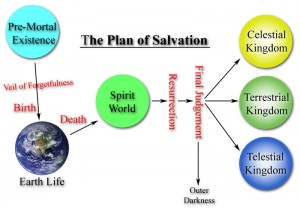

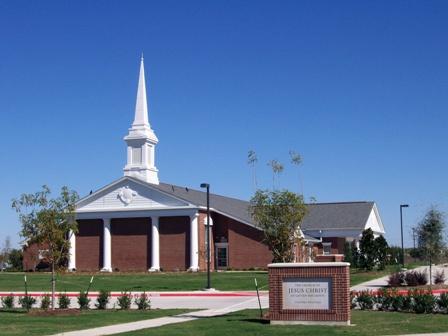 So, who’d like to know what a typical LDS church meeting is like? Anyone is welcome to attend their local LDS congregation and find out for themselves, but I’m sure there are plenty of people who would like to know what to expect before they enter the building.
So, who’d like to know what a typical LDS church meeting is like? Anyone is welcome to attend their local LDS congregation and find out for themselves, but I’m sure there are plenty of people who would like to know what to expect before they enter the building.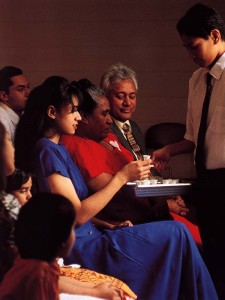 After the ward business is concluded, we’ll sing a sacrament hymn and have the blessing and passing of the sacrament. You shouldn’t be alarmed to find that we use water instead of wine, since Mormons don’t drink
After the ward business is concluded, we’ll sing a sacrament hymn and have the blessing and passing of the sacrament. You shouldn’t be alarmed to find that we use water instead of wine, since Mormons don’t drink 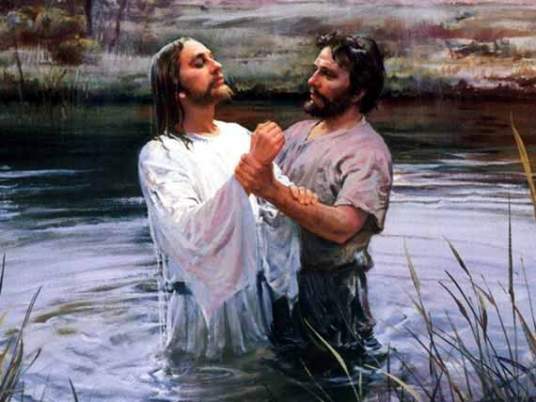 Baptism by water is the gateway to the straight and narrow path leading home to God. Jesus taught, “Except a man be born of water and of the Spirit, he cannot enter into the kingdom of God” (
Baptism by water is the gateway to the straight and narrow path leading home to God. Jesus taught, “Except a man be born of water and of the Spirit, he cannot enter into the kingdom of God” (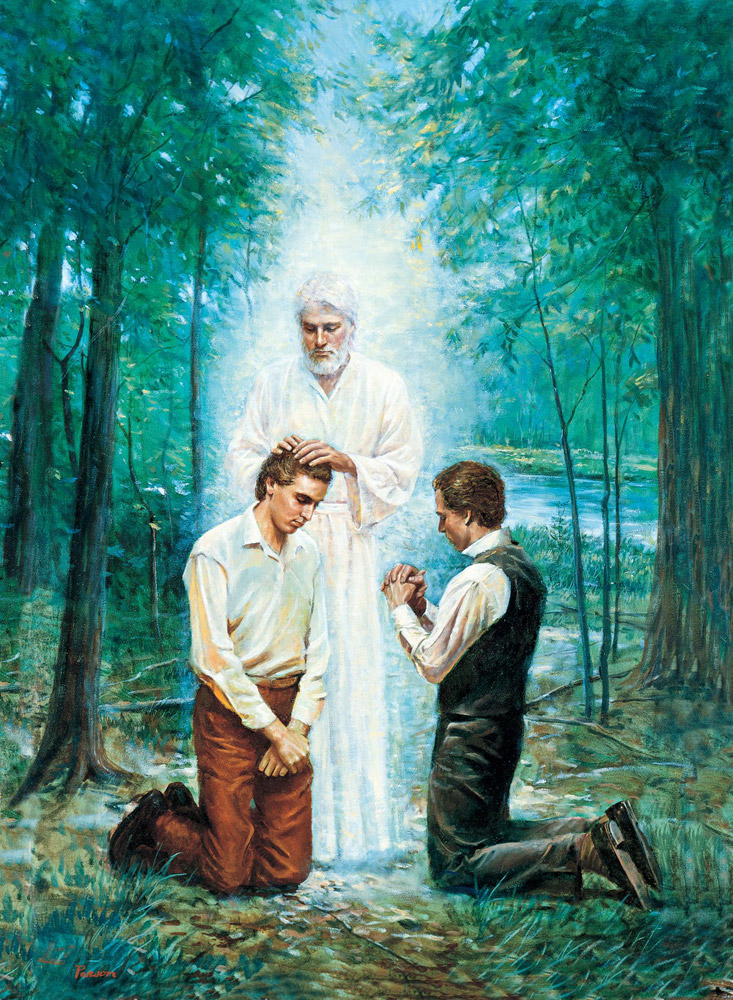 An angel appeared to them both. He said he was John the Baptist, and laying his hands on their heads, he said, “Upon you my fellow servants, in the name of Messiah I confer the Priesthood of Aaron, which holds the keys of the ministering of angels, and of the gospel of repentance, and of baptism by immersion for the remission of sins…” (
An angel appeared to them both. He said he was John the Baptist, and laying his hands on their heads, he said, “Upon you my fellow servants, in the name of Messiah I confer the Priesthood of Aaron, which holds the keys of the ministering of angels, and of the gospel of repentance, and of baptism by immersion for the remission of sins…” (